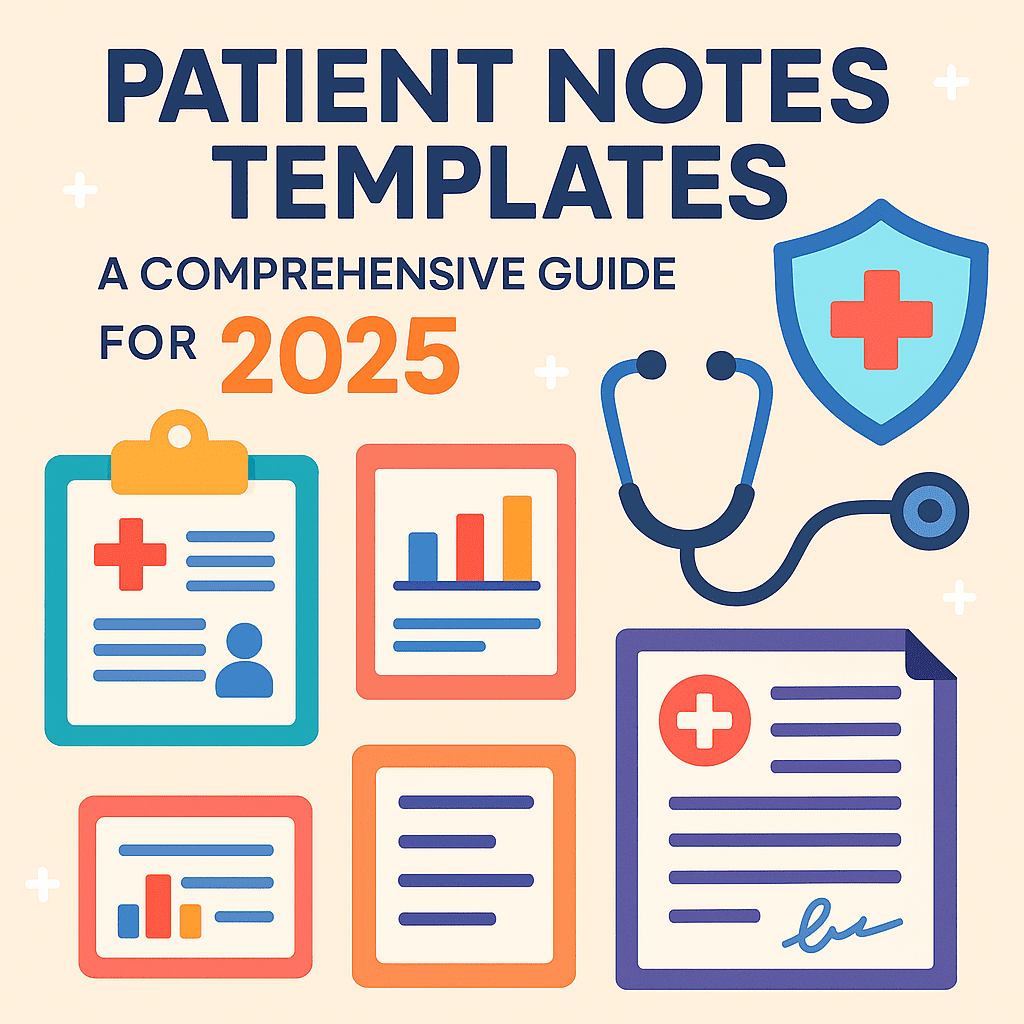Updated on: July 15, 2025
Completing patient notes effectively is essential but time-consuming. Using purpose-built templates saves time, improves consistency, and supports accurate clinical decision-making. This guide highlights essential note formats, sample charts, and how DocScrib enhances documentation with AI.
Join 10,000+ Happy Clinicians
The AI Medical Scribe for Happiest Clinicians
Save 2+ hours daily with instant clinical documentation.
Our AI scribe listens, understands, and generates comprehensive medical notes so you can focus on patient care.
Start Free Trial
✔No credit card required • HIPAA compliant
📌 Why You Need Note Templates
- Boost efficiency: Avoid reinventing the wheel—start with structured formats instead.
- Maintain consistency: Ensure all required data is recorded accurately.
- Reduce cognitive load: Follow a clear format so clinicians can focus on care, not memorizing structure.
- Support compliance: Aid in billing, legal standards, and sharing notes with patients.
🛠️ 9 Essential Patient Note Templates
From intake to discharge, different clinical encounters demand tailored note formats:
- Patient Intake Form – Baseline history and demographics.
- SOAP Progress Notes – Standard subjective–objective–assessment–plan format.
- Discharge Summary – Reviews hospital stay and delivers post-discharge guidance.
- Follow-up Visit Note – Updates patient progress and modifies treatment.
- Mental Health Note (BIRP, DAP) – Captures behavioral incidents and interventions.
- Procedural Note – Documents procedures, medications, and patient response.
- Telehealth Visit Note – Includes virtual-specific elements like connectivity and environment.
- Referral or Consultation Note – Details recommendations and external provider summaries.
- Nursing or Allied Health Note – Captures vital signs, interventions, and patient responses.
📊 Best Note Format by Encounter Type
| Encounter Type | Recommended Template Format |
|---|---|
| In-Person Visit | SOAP Progress Notes |
| Initial Visit | SOAP + expanded Intake sections |
| Behavioral Health | BIRP or DAP |
| Procedure | Procedural Note template |
| Telehealth | SOAP + Virtual Visit Addendum |
| Discharge | Discharge Summary |
📈 Template Effectiveness Chart
Efficiency Improvement (%)
0 ──┬────────────┬────────────┬────────────┐
│ │ │ │
50% ──┼────●──────┼────────────┼────────────┤ Procedural Notes
│ ● │ │ │ Intake Notes
100% ──┼────────────┼────●──────┼────────────┤ Follow‑up SOAP
│ │ ● │ │ Telehealth Notes
150% ──┼────────────┼────────────┼────●──────┤ Mental Health Notes
└─────────────────────────────────────────
- All note types improve clinician time by approximately 50–150% when using templates and AI.
🤝 How DocScrib Elevates Documentation
- Built-in templates across formats—SOAP, BIRP, discharge, and more.
- Voice capture during encounters for streamlined entry.
- Automated organization of notes into EHR-ready formats.
- AI suggestions ensure completeness and highlight missing sections.
- Continuous learning adapts templates based on clinician preferences.
🎯 Takeaways
- A diverse library of templates ensures documentation fits the care context.
- Evidence shows templates reduce time and improve quality.
- DocScrib integrates AI to make template-based note-taking effortless, accurate, and clinician-friendly.
In This Article
